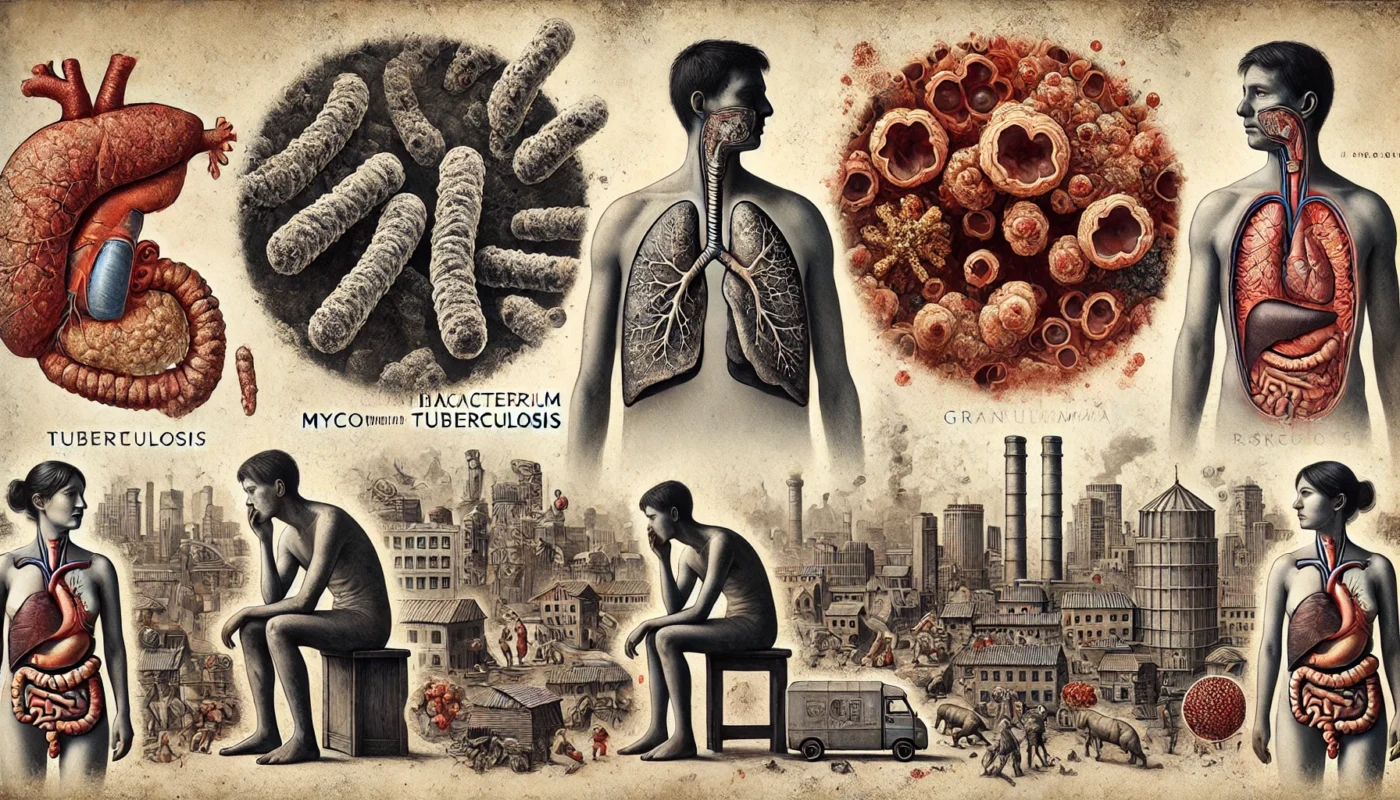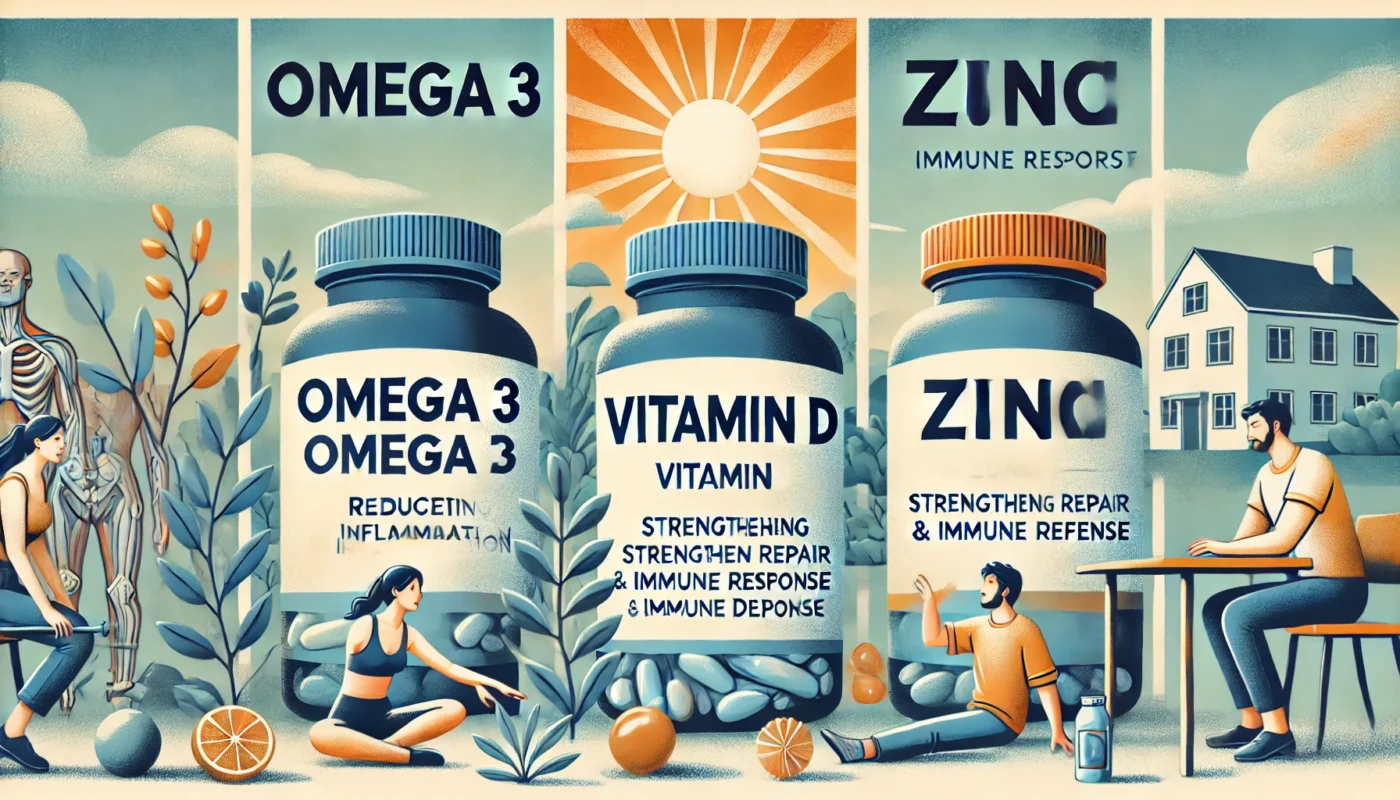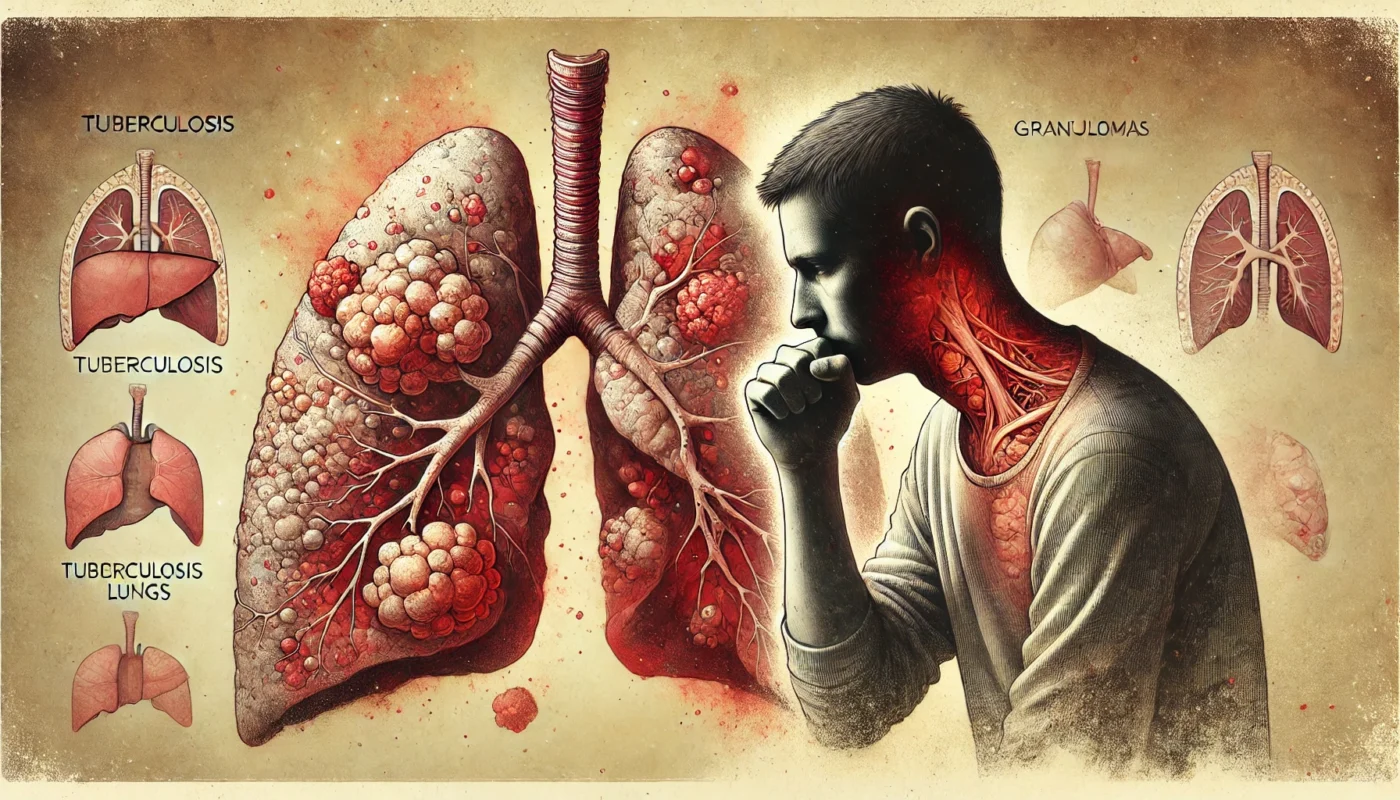Tuberculosis (TB) is a bacterial infection caused by Mycobacterium tuberculosis that primarily affects the lungs but can spread to other parts of the body, such as the kidneys, spine, and brain. Despite being preventable and curable, TB remains one of the top infectious disease killers worldwide. According to the World Health Organization (WHO), approximately 10 million people developed TB in 2021, and 1.5 million died from the disease. This article explores TB’s description, symptoms, causes, treatment options, and prevention strategies, along with evidence-based nutritional interventions that support recovery.
You May Also Like:
COPD: Description, Symptoms, Causes, Treatment Options, Healing, and Steps for Possible Prevention
What is Tuberculosis?
Tuberculosis is an airborne infectious disease transmitted through respiratory droplets. When individuals with active pulmonary TB cough, sneeze, or speak, they release bacteria into the air that can infect others. TB is categorized into two forms:
- Latent TB Infection (LTBI): The bacteria remain in the body in an inactive state, causing no symptoms. Individuals with LTBI are not contagious but are at risk of developing active TB if their immune system weakens.
- Active TB Disease: The bacteria multiply, causing symptoms and tissue damage. Active TB is contagious and requires immediate medical treatment.

Symptoms of Tuberculosis
The symptoms of TB depend on whether the disease is active and the organs involved:
1. Pulmonary TB (Lungs):
- Persistent cough lasting three weeks or more.
- Coughing up blood or sputum.
- Chest pain, especially during breathing or coughing.
2. Systemic Symptoms:
- Unexplained weight loss.
- Fever and chills.
- Night sweats.
- Fatigue and weakness.
3. Extrapulmonary TB (Other Organs):
- Pain and swelling in the affected area (e.g., joints or lymph nodes).
- Neurological symptoms such as headaches or seizures in cases of TB meningitis.
A study published in The Lancet Infectious Diseases (2021) found that 20% of TB cases globally involve extrapulmonary TB, highlighting the importance of thorough diagnosis.
Causes of Tuberculosis
Tuberculosis is caused by Mycobacterium tuberculosis, but the likelihood of infection and progression depends on several factors:
1. Transmission:
- TB spreads when an infected individual expels bacteria into the air. Prolonged exposure to an infectious person increases the risk of transmission.
2. Weakened Immune System:
- Conditions like HIV/AIDS, diabetes, or malnutrition compromise the immune system, making individuals more susceptible to active TB.
3. Environmental and Socioeconomic Factors:
- Overcrowding, poor ventilation, and poverty contribute to the spread of TB, particularly in developing countries.
4. Drug Resistance:
- Multidrug-resistant TB (MDR-TB) arises when bacteria develop resistance to first-line antibiotics, making treatment more challenging.
The WHO reported in 2022 that MDR-TB accounts for 3–4% of new TB cases globally, underscoring the need for effective treatment and prevention measures.

Treatment Options for Tuberculosis
Effective TB treatment requires a combination of antibiotics taken over an extended period to ensure complete eradication of the bacteria and prevent drug resistance.
1. First-Line Antibiotics:
- Isoniazid, Rifampin, Ethambutol, and Pyrazinamide: These drugs are typically administered as part of a six-month regimen for drug-susceptible TB.
- A randomized controlled trial in The New England Journal of Medicine (2020) demonstrated that adherence to this regimen achieved a 90% cure rate in drug-sensitive TB cases.
2. Treatment for Drug-Resistant TB:
- Second-Line Drugs: Include fluoroquinolones (e.g., levofloxacin) and injectable agents (e.g., amikacin) for MDR-TB.
- Bedaquiline and Delamanid: Newer antibiotics approved for resistant TB strains.
3. Adjunct Therapies:
- Corticosteroids may be used for TB meningitis or pericarditis to reduce inflammation.
4. Supportive Care:
- Nutritional support and management of comorbid conditions like diabetes are critical for improving treatment outcomes.
Nutritional Supplementation for Tuberculosis Relief
Nutrition plays a crucial role in TB recovery, as malnutrition and vitamin deficiencies are common in TB patients. Evidence-based supplements include:
- Omega-3 Fatty Acids
Omega-3 fatty acids support immune function, reduce inflammation, and improve nutritional status. Research published in The Journal of Nutrition in 2019 demonstrated that omega-3 supplementation improved weight gain and immune markers in malnourished TB patients, aiding recovery. - B-complex Vitamins
B-complex vitamins are vital for energy production and combating fatigue during TB treatment. They also support nervous system health, which can be compromised in severe or prolonged cases of TB. - Vitamin D
Vitamin D is critical for immune regulation and helps the body fight Mycobacterium tuberculosis. A meta-analysis published in The Lancet in 2021 found that vitamin D supplementation reduced the duration of treatment and improved recovery rates in TB patients. - Curcumin (Turmeric)
Curcumin has potent anti-inflammatory and antimicrobial properties that enhance immune function. A clinical trial published in Phytotherapy Research in 2020 found that curcumin supplementation reduced lung inflammation and improved treatment outcomes in patients with TB. - Zinc
Zinc plays an essential role in immune function, wound healing, and tissue repair. Supplementing with zinc can help TB patients recover faster by boosting immune responses and supporting overall health. - Probiotics
Probiotics help restore gut microbiota disrupted by prolonged antibiotic treatment, reducing gastrointestinal side effects and supporting immune function. Studies show that strains such as Lactobacillus and Bifidobacterium are particularly beneficial for TB patients.

Healing Strategies for Tuberculosis
Healing from TB requires a comprehensive approach that combines medical treatment, nutritional support, and lifestyle adjustments:
1. Adherence to Treatment:
- Completing the prescribed antibiotic regimen is essential to prevent relapse and drug resistance.
2. Balanced Diet:
- Incorporate nutrient-rich foods, including lean proteins, whole grains, fruits, and vegetables, to support immune function and recovery.
3. Physical Activity:
- Gradual physical activity improves lung function and overall health.
4. Mental Health Support:
- TB treatment can be physically and emotionally challenging. Counseling and support groups help patients cope with the disease.
5. Routine Monitoring:
- Regular follow-ups ensure the effectiveness of treatment and early detection of complications.
Steps for Possible Prevention
Preventing TB involves public health measures, vaccination, and personal protective strategies:
1. Bacillus Calmette-Guérin (BCG) Vaccine:
- The BCG vaccine provides partial protection against severe TB forms in children.
2. Screening and Early Treatment:
- Regular screening for high-risk individuals, such as healthcare workers and those living with HIV, ensures early detection and treatment.
3. Infection Control Measures:
- Ensure proper ventilation in crowded spaces and use personal protective equipment, such as masks, when interacting with infectious individuals.
4. Address Comorbidities:
- Managing conditions like diabetes and malnutrition reduces the risk of active TB.
5. Antibiotic Stewardship:
- Use antibiotics judiciously to prevent the development of drug-resistant TB strains.
Conclusion
Tuberculosis remains a global health challenge, but effective treatment and prevention measures can curb its impact. Early diagnosis, adherence to antibiotic regimens, and comprehensive support systems are crucial for successful outcomes. Nutritional supplementation with ingredients like curcumin, omega-3 fatty acids, and vitamin D can complement conventional therapies by reducing inflammation, boosting immunity, and improving overall recovery. By addressing socioeconomic determinants and enhancing public health strategies, we can work towards a world free from TB.

References
- Global Tuberculosis Programme. Retrieved from: https://www.who.int/teams/global-tuberculosis-programme/tb-reports
- Longer-Term Omega-3 LCPUFA More Effective Adjunct Therapy for Tuberculosis Than Ibuprofen in a C3HeB/FeJ Tuberculosis Mouse Model. Retrieved from: https://pubmed.ncbi.nlm.nih.gov/33995381/
- Global treatment outcomes of extensively drug-resistant tuberculosis in adults: A systematic review and meta-analysis. Retrieved from: https://pubmed.ncbi.nlm.nih.gov/37356629/
- The role of vitamin D in tuberculosis. Retrieved from: https://pmc.ncbi.nlm.nih.gov/articles/PMC5684962/
- Effect of Curcumin in Experimental Pulmonary Tuberculosis: Antimycobacterial Activity in the Lungs and Anti-Inflammatory Effect in the Brain. Retrieved from: https://pmc.ncbi.nlm.nih.gov/articles/PMC8876821/
Important Note: The information contained in this article is for general informational purposes only, and should not be construed as health or medical advice, nor is it intended to diagnose, prevent, treat, or cure any disease or health condition. Before embarking on any diet, fitness regimen, or program of nutritional supplementation, it is advisable to consult your healthcare professional in order to determine its safety and probable efficacy in terms of your individual state of health.
Regarding Nutritional Supplements Or Other Non-Prescription Health Products: If any nutritional supplements or other non-prescription health products are mentioned in the foregoing article, any claims or statements made about them have not been evaluated by the U.S. Food and Drug Administration, and such nutritional supplements or other health products are not intended to diagnose, treat, cure, or prevent any disease.

